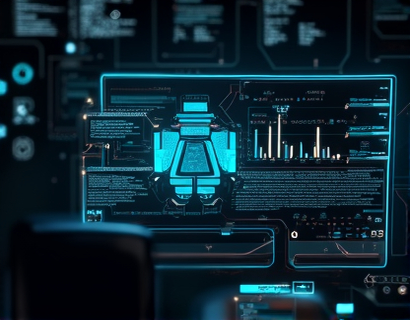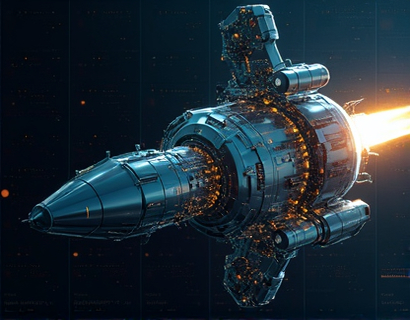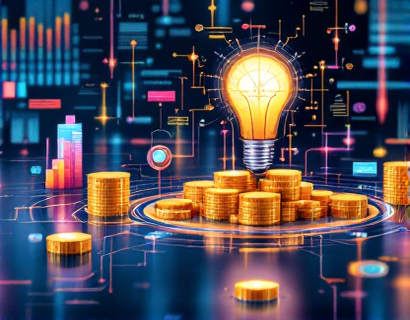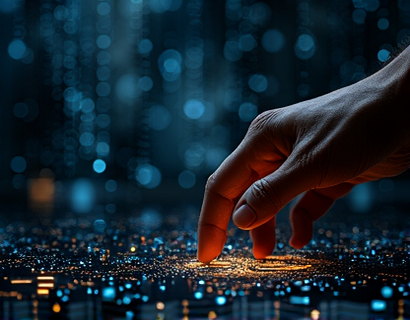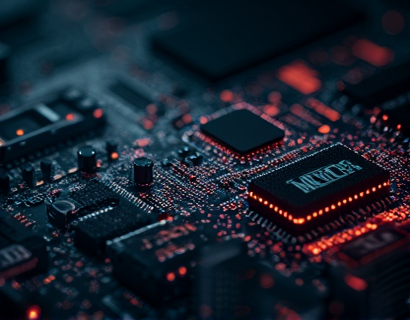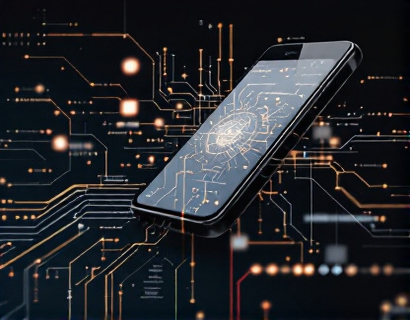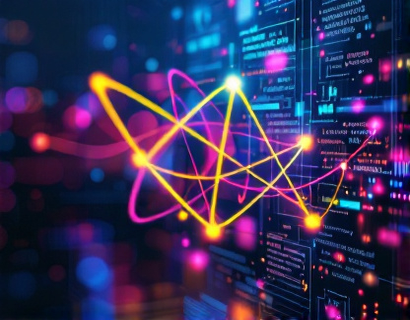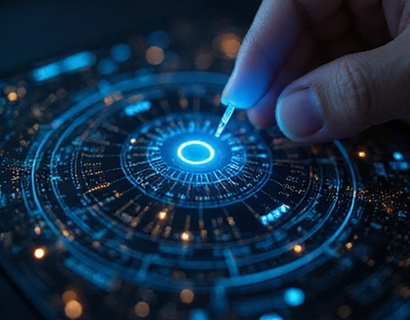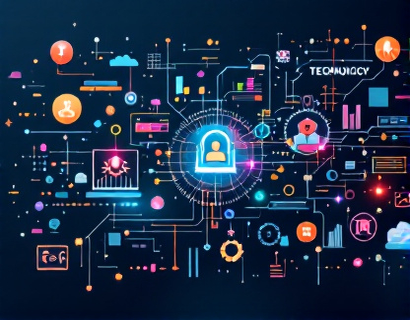Decentralized Innovation: Unlocking Next-Gen Digital Transformation with AI and Crypto Synergy
The digital landscape is undergoing a profound transformation, driven by the converging powers of artificial intelligence (AI) and cryptocurrency. This synergy is giving rise to decentralized applications and services that are redefining user experience and engagement. As tech-savvy innovators and early adopters increasingly turn their attention to the intersection of AI and crypto, it becomes crucial to explore how these technologies are not just evolving in isolation but are creating a synergistic force that propels digital innovation to new heights.
The concept of decentralization has been a cornerstone of the blockchain revolution, offering a paradigm shift from centralized systems to peer-to-peer networks. When combined with AI, this decentralization takes on a new dimension, enabling the creation of smart, autonomous, and highly efficient systems. AI's ability to process vast amounts of data, learn from patterns, and make decisions without human intervention complements blockchain's inherent transparency, security, and decentralized governance. Together, they form a powerful duo that is reshaping industries and reimagining digital interactions.
One of the most significant areas where AI and cryptocurrency synergy is making an impact is in the development of decentralized applications (dApps). Unlike traditional applications hosted on centralized servers, dApps run on decentralized networks, typically blockchain-based, ensuring greater resilience, privacy, and user control. AI enhances these applications by providing intelligent functionalities such as predictive analytics, natural language processing, and automated decision-making, all while leveraging the immutable and transparent nature of blockchain.
For instance, in the finance sector, decentralized finance (DeFi) platforms are leveraging AI to offer sophisticated trading algorithms, risk management tools, and personalized financial services. These platforms operate without intermediaries, reducing costs and increasing accessibility. AI-driven bots can analyze market trends, execute trades, and manage portfolios with minimal human intervention, all while ensuring that transactions are recorded on a secure and transparent ledger.
The healthcare industry is another domain where the AI-crypto synergy is driving transformative change. Decentralized health records, powered by blockchain, ensure that patient data is secure, private, and easily shareable among authorized parties. AI algorithms can analyze this data to identify patterns, predict disease outbreaks, and personalize treatment plans. This not only enhances patient care but also optimizes resource allocation and reduces healthcare costs.
In the realm of supply chain management, the combination of AI and blockchain is revolutionizing how goods are tracked and managed. AI can predict demand, optimize inventory levels, and detect anomalies in real-time, while blockchain provides an immutable record of every transaction and movement. This ensures transparency, reduces fraud, and enhances efficiency across the entire supply chain, from manufacturing to delivery.
The gaming industry is also witnessing a renaissance thanks to the AI-crypto convergence. Decentralized gaming platforms are emerging, where players can own in-game assets as non-fungible tokens (NFTs) and participate in governance through token-based voting. AI can enhance gameplay by creating dynamic and adaptive environments, personalized experiences, and intelligent non-playable characters (NPCs). This not only increases player engagement but also opens new revenue streams for developers and content creators.
Beyond these specific applications, the AI-crypto synergy is fostering a new ecosystem of innovation. Developers and entrepreneurs are empowered to build decentralized platforms and services that are more resilient, transparent, and user-centric. The open-source nature of many blockchain projects and AI frameworks encourages collaboration and rapid prototyping, accelerating the pace of innovation.
However, the integration of AI and cryptocurrency is not without challenges. Scalability remains a significant issue, as blockchain networks struggle to handle the high transaction volumes required for widespread adoption. AI models, particularly deep learning algorithms, demand substantial computational resources, which can strain the energy efficiency of blockchain networks. Addressing these challenges requires ongoing research and development, as well as the creation of more efficient and sustainable technologies.
Another critical aspect is the regulatory landscape. As decentralized applications and crypto-based services gain traction, governments and regulatory bodies are beginning to take notice. Ensuring compliance with existing laws while advocating for a favorable regulatory environment is essential for the growth and adoption of these technologies. This involves engaging with policymakers, demonstrating the benefits of decentralized innovation, and addressing concerns related to security, privacy, and consumer protection.
The future of decentralized innovation with AI and crypto synergy is bright, with numerous opportunities on the horizon. As the technology matures, we can expect to see more sophisticated and seamless integrations, leading to even more transformative applications. The potential for creating autonomous systems that can self-improve, adapt to changing conditions, and deliver unparalleled user experiences is immense.
For those interested in exploring this exciting frontier, resources such as blockchain development frameworks, AI libraries, and decentralized platform documentation are invaluable. Communities and forums dedicated to decentralized technologies provide a wealth of knowledge and support for innovators at all levels. Engaging with these resources and participating in the growing ecosystem can help individuals and organizations stay ahead of the curve and contribute to the ongoing revolution in digital transformation.
In conclusion, the synergy between AI and cryptocurrency is unlocking a new era of digital innovation, where decentralized applications and services are redefining user experience and engagement. By harnessing the strengths of both technologies, we can build a more resilient, transparent, and user-centric digital world. As we continue to push the boundaries of what is possible, the future looks promising for those who embrace this transformative power.













